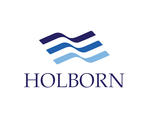Withdrawals of cash from an overseas account can be made using an international network such as Visa or Mastercard. It’s also possible to withdraw cash using a credit card, although this incurs high charges. Foreign currency can be changed at many outlets in Kuwait, although, as mentioned above, it’s inadvisable to change currency at your hotel, where the rate will invariably be much less favourable than at a bank or bureau de change. The country’s bureaux de change usually offer competitive exchange rates, but you should check to see if commission applies, and it’s worthwhile shopping around. Most airport exchanges handle major foreign currencies, but for obscure currencies you may need to make special arrangements.
Carrying travellers’ cheques is more convenient and generally safer than carrying a lot of cash. However, at certain times and in some places it can be difficult to cash travellers’ cheques. Shops and restaurants, for example, don’t readily accept travellers’ cheques. As well as banks and bureaux de change, most hotels change travellers’ cheques, but at much poorer rates of exchange. Banks charge a small commission for exchanging travellers’ cheques and the exchange rate is invariably better than that offered for the conversion of banknotes. Proof of identity (e.g. passport) is required.
Always keep a separate record of travellers’ cheque numbers when you cash them, noting when and where this takes place. Most cheque issuers offer a replacement service for lost or stolen cheques (although there’s little danger of theft in Kuwait, where the crime rate is low), but the time taken to replace them varies significantly. American Express claims to have a free, three-hour replacement service at any of their offices worldwide, provided that you can supply the serial numbers of the cheques in question. Without the serial numbers, replacement can take some days.
It’s unlikely that you will be able to purchase travellers’ cheques in Kuwaiti Dinars, and, as the currency is tied to the US$, you should use US$ cheques (or cash) in preference to any other in order to avoid possible exchange fluctuations.
Don’t change travellers’ cheques to any currency other than that of the country you’re in. For example, if you’re travelling between different Gulf states, resist the temptation to change your money in one place to meet your needs in all the different states that you’re visiting. If you do, you’re likely to find that the exchange process takes two steps: if you’re buying Saudi riyals in Kuwait, for example, your dollars will be converted to Kuwaiti dinars and then from Kuwaiti dinars to Saudi riyals. Although the currencies are linked, there will be a commission charge on each transaction.


